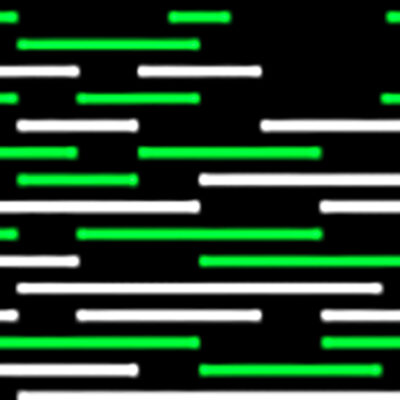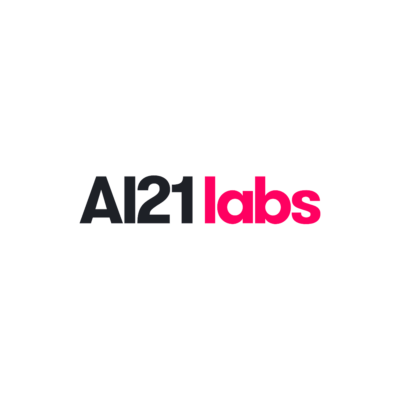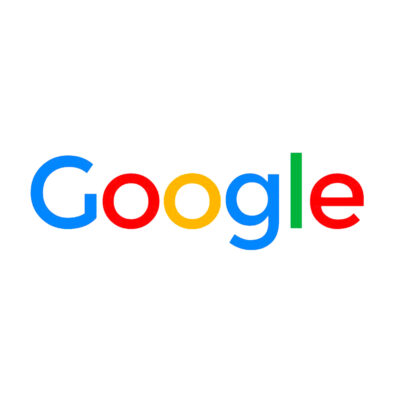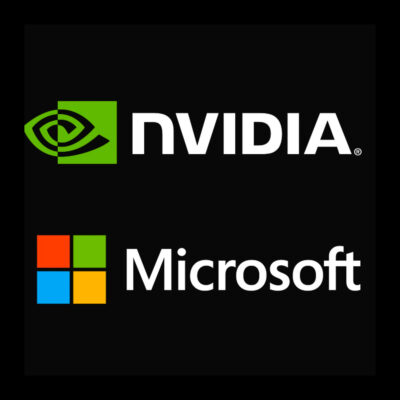Compare Models
-
OpenAI
GPT-3.5-turbo 4k
$0.002GPT-3.5-turbo is an upgraded version of the GPT-3 model. It was designed to provide better performance and is well-known as the model that, by default, powers ChatGPT (however, paying customer who subscribe to ChatGPT Plus can change the model to GPT-4 before you start a chat).GPT-3.5-turbo is optimized for conversational formats and is superior to GPT-3 models, and the performance of GPT-3.5-turbo is on par with Instruct Davinci-003 (however is also ten times cheaper and has been seen to be three times faster). GPT-3.5-turbo was trained on a massive corpus of text data, including books, articles, and web pages from across the internet and is used for tasks like content and code generation, question answering, translation, and more. In some cases, GPT-3.5-turbo results can sometimes be too “chatty” or “creative”. Access is available through a request to OpenAI’s API or through the web application (try for free). -
OpenAI
GPT-4 32K context
$0.12GPT-4 is OpenAI’s new design that incorporates additional improvements and advancements, including being multimodal so it can take both text and image inputs. With broad general knowledge and domain expertise, GPT-4 can follow complex instructions in natural language and solve difficult problems with accuracy. GPT-4 has a more diverse range of training data, incorporating additional languages and sources beyond just English. This means that the model will be able to process and generate text in multiple languages and better understand the nuances and subtleties of different languages and dialects. This is the extended 32k token context-length model, which is separate to the 8k model (and is more expensive).
GPT-4 API access is now available.
Note: At the time of writing, ChatGPT Plus subscribers can access Chat GPT-4 by logging into the web application.
-
OpenAI
GPT-4 8K context
$0.06GPT-4 is OpenAI’s new design that incorporates additional improvements and advancements, including being multimodal so it can take both text and image inputs. With broad general knowledge and domain expertise, GPT-4 can follow complex instructions in natural language and solve difficult problems with accuracy. GPT-4 has a more diverse range of training data, incorporating additional languages and sources beyond just English. This means that the model will be able to process and generate text in multiple languages and better understand the nuances and subtleties of different languages and dialects. There are a few different GPT-4 models to choose from. The standard GPT-4 model offers 8k tokens for the context. GPT-4 API access is now available.
Note: For the ChatGPT web application, ChatGPT is powered by GPT-3.5 turbo by default. However, if you are a paying customer and subscribe to ChatGPT Plus, you can change the model to GPT-4 before you start a chat.
-
AI21 Labs
Jurassic-2 Grande (Base & Instruct)
$0.01J2-Grande offers enhanced text generation capabilities, making it well-suited to language tasks with a greater degree of complexity. Its fine-tuning options allow for optimization of quality, while maintaining an affordable price and high efficiency (see site for more details). It is an ideal choice for complex language processing tasks and generative text applications. All of J2 models support several non-English languages, including: Spanish, French, German, Portuguese, Italian and Dutch. All Jurassic foundation models are trained on a massive corpus of text, making them a powerful basis for a wide range of natural language processing applications, capable of understanding and composing human-like text. Models are available through an API and you can start with a free trial and then pay based on usage. -
AI21 Labs
Jurassic-2 Jumbo (Base & Instruct)
$0.015As the largest and most powerful model in the Jurassic series, J2-Jumbo is an ideal choice for the most complex language processing tasks and generative text applications. Further, the model can be fine-tuned for optimum performance in any custom application. Jurassic-2 not only improves upon Jurassic-1 (AI21 Studio previous generation models) in every aspect, making it highly versatile in general purpose text-generators, and capable of composing human-like text and solving complex tasks such as question answering and text classification. All of the J2 models support several non-English languages, including: Spanish, French, German, Portuguese, Italian and Dutch. All Jurassic foundation models are trained on a massive corpus of text, making them a powerful basis for a wide range of natural language processing applications, capable of understanding and composing human-like text. Models are available through an API and you can start with a free trial and then pay based on usage. -
AI21 Labs
Jurassic-2 Large (Base & Instruct)
$0.003Designed for fast responses, the Jurassic-2 Large model can be fine-tuned to optimize performance for relatively simple tasks, making it an ideal choice for language processing tasks that require maximum affordability and less processing power. All of the J2 models support several non-English languages, including: Spanish, French, German, Portuguese, Italian and Dutch. All Jurassic foundation models are trained on a massive corpus of text, making them a powerful basis for a wide range of natural language processing applications, capable of understanding and composing human-like text. Models are available through an API and you can start with a free trial and then pay based on usage.
-
Google
LaMDA
OTHERLaMDA stands for Language Model for Dialogue Application. It is a conversational Large Language Model (LLM) built by Google as an underlying technology to power dialogue-based applications that can generate natural-sounding human language. LaMDA is built by fine-tuning a family of Transformer-based neural language models specialized for dialog and teaching the models to leverage external knowledge sources. The potential use cases for LaMDA are diverse, ranging from customer service and chatbots to personal assistants and beyond. LaMDA is not open source; currently, there are no APIs or downloads. However, Google is working on making LaMDA more accessible to researchers and developers. In the future, it is likely that LaMDA will be released as an open source project, and that APIs and downloads will be made available. -
Microsoft, NVIDIA
MT-NLG
OTHERMT-NLG (Megatron-Turing Natural Language Generation) uses the architecture of the transformer-based Megatron to generate coherent and contextually relevant text for a range of tasks, including completion prediction, reading comprehension, commonsense reasoning, natural language inferences, and word sense disambiguation. MT-NLG is the successor to Microsoft Turing NLG 17B and NVIDIA Megatron-LM 8.3B. The MT-NLG model is three times larger than GPT-3 (530B vs 175B). Following the original Megatron work, NVIDIA and Microsoft trained the model on over 4,000 GPUs. NVIDIA has announced an Early Access program for its managed API service to the MT-NLG model for organizations and researchers. -
Google
PaLM 2 chat-bison-001
$0.0021535PaLM 2 has just launched (May 2023) and is Google’s next-generation Large Language Model, built on Google’s Pathways AI architecture. PaLM 2 was trained on a massive dataset of text and code, and it can handle many different tasks and learn new ones quickly. It is seen as a direct competitor to OpenAI’s GPT-4 model. It excels at advanced reasoning tasks, including code and math, classification and question answering, translation and multilingual proficiency (100 languages), and natural language generation better than our previous state-of-the-art LLMs, including its predecessor PaLM.PaLM 2 is the underlying model driving the PaLM API that can be accessed through Google’s Generative AI Studio. PaLM 2 has four submodels with different sizes. Bison is the best value in terms of capability and chat-bison-001 has been fine-tuned for multi-turn conversation use cases. If you want to see PaLM 2 capabilities, the simplest way to use it is through Google Bard (PaLM 2 is the technology that powers Google Bard).Watch Paige Bailey introducing PaLM 2: view here
-
ChatGLM
PaLM 2 text-bison-001
$0.004PaLM 2 has just launched (May 2023) and is Google’s next-generation Large Language Model, built on Google’s Pathways AI architecture. PaLM 2 was trained on a massive dataset of text and code, and it can handle many different tasks and learn new ones quickly. It is seen as a direct competitor to OpenAI’s GPT-4 model. It excels at advanced reasoning tasks, including code and math, classification, question answering, translation and multilingual proficiency (100 languages), and natural language generation better than our previous state-of-the-art LLMs, including its predecessor PaLM.PaLM 2 is the underlying model driving the PaLM API that can be accessed through Google’s Generative AI Studio. PaLM 2 has four submodels with different sizes. Bison is the best value in terms of capability and cost, and text-bison-001 can be fine-tuned to follow natural language instructions and is suitable for various language tasks such as classification, sentiment analysis, entity extraction, extractive question answering, summarization, re-writing text in a different style, and concept ideation.If you want to see PaLM 2 capabilities, the simplest way to use it is through Google Bard (PaLM 2 is the technology that powers Google Bard).
Watch Paige Bailey introducing PaLM 2: view here
-
Google
PaLM 2 textembedding-gecko-001
$0.0004PaLM 2 has just launched (May 2023) and is Google’s next-generation Large Language Model, built on Google’s Pathways AI architecture. PaLM 2 was trained on a massive dataset of text and code, and it can handle many different tasks and learn new ones quickly. It is seen as a direct competitor to OpenAI’s GPT-4 model. It excels at advanced reasoning tasks, including code and math, classification and question answering, translation and multilingual proficiency (100 languages), and natural language generation better than our previous state-of-the-art LLMs, including its predecessor PaLM.PaLM 2 is the underlying model driving the PaLM API that can be accessed through Google’s Generative AI Studio. PaLM 2 has four submodels with different sizes: Unicorn (the largest), Bison, Otter, and Gecko (the smallest) and the different sizes of the submodels allow PaLM 2 to be more efficient and to perform different tasks. Gecko is the smallest and cheapest model for simple tasks and textembedding-gecko-001 returns model embeddings for text inputs.If you want to see PaLM 2 capabilities, the simplest way to use it is through Google Bard (PaLM 2 is the technology that powers Google Bard).Watch Paige Bailey introducing PaLM 2: view here
-
RedPajama
RedPajama-INCITE-7B-Instruct
FREEThe RedPajama project aims to create a set of leading open source models. RedPajama-INCITE-7B-Instruct was developed by Together and leaders from the open source AI community. RedPajama-INCITE-7B-Instruct model represents the top-performing open source entry on the HELM benchmarks, surpassing other cutting-edge open models like LLaMA-7B, Falcon-7B, and MPT-7B. The instruct-tuned model is designed for versatility and shines when tasked with few-shot performance.The Instruct, Chat, Base Model, and ten interim checkpoints are now available on HuggingFace, and all the RedPajama LLMs come with commercial licenses under Apache 2.0.Play with the RedPajama chat model version here – https://lnkd.in/g3npSEbg







